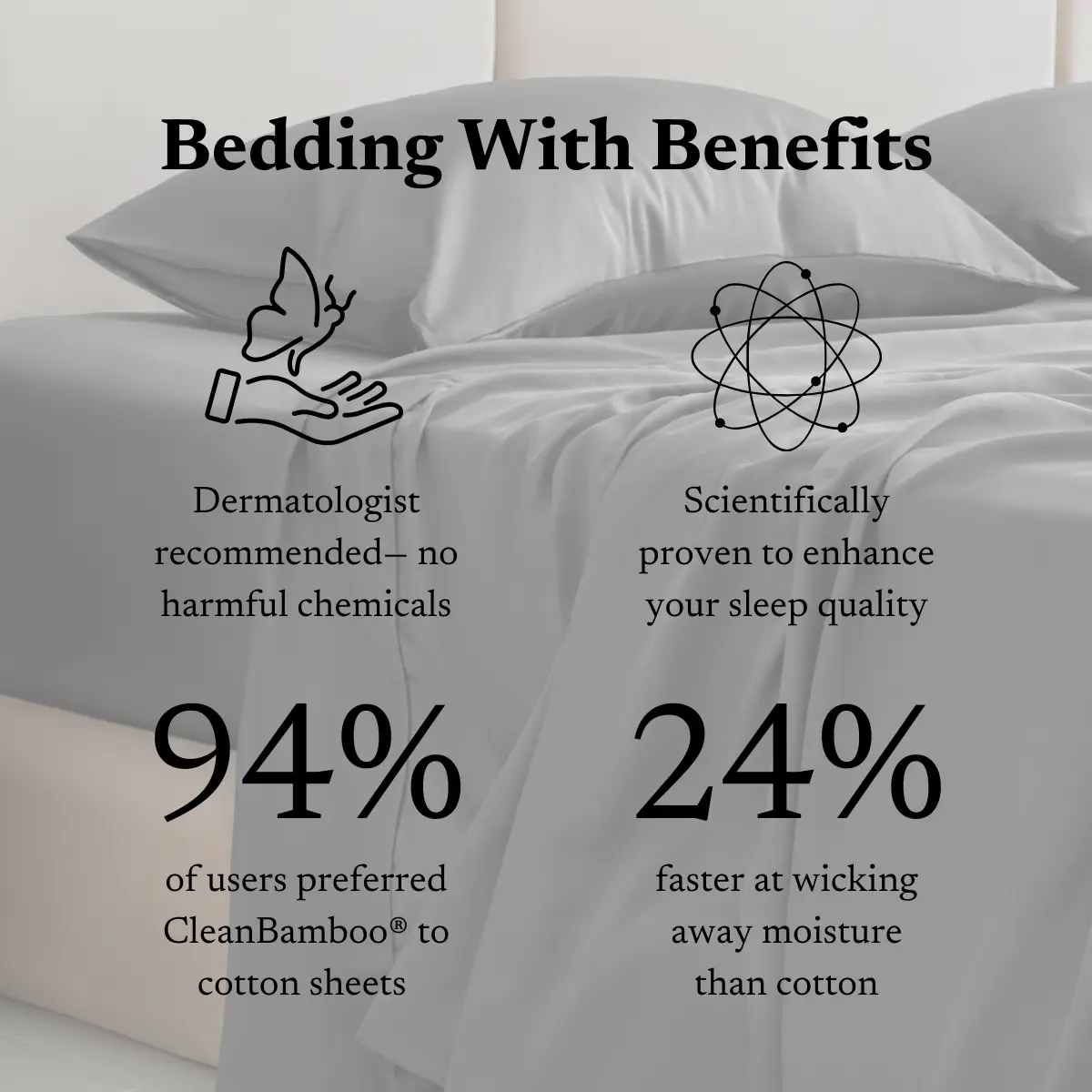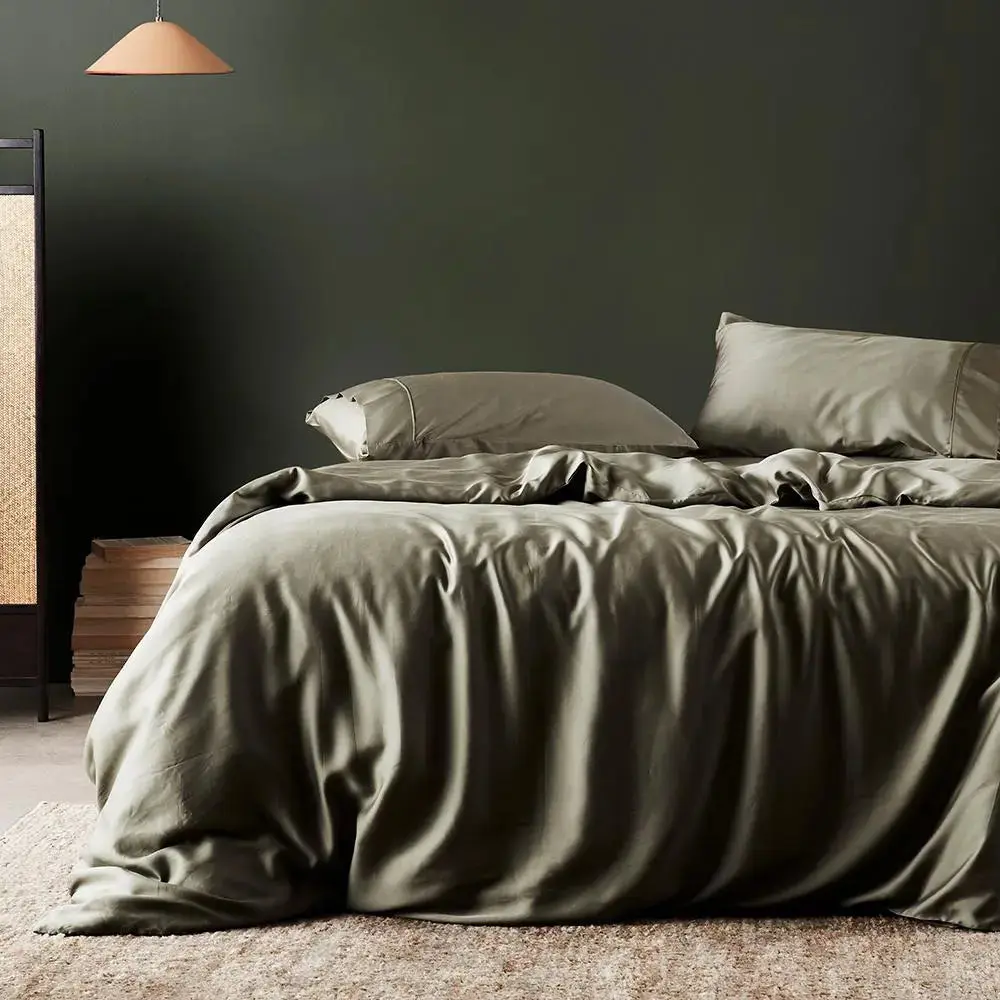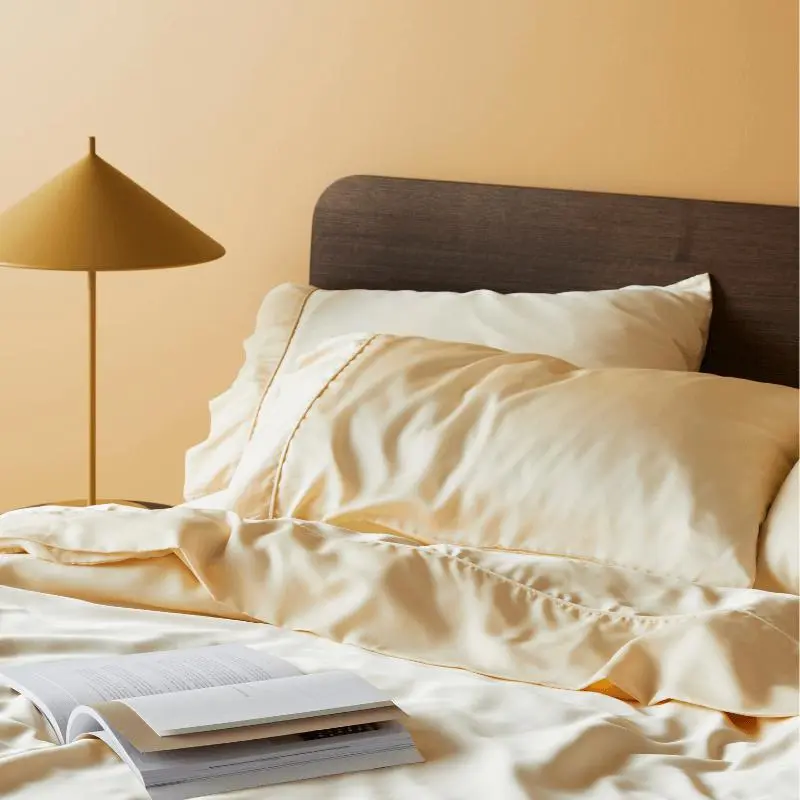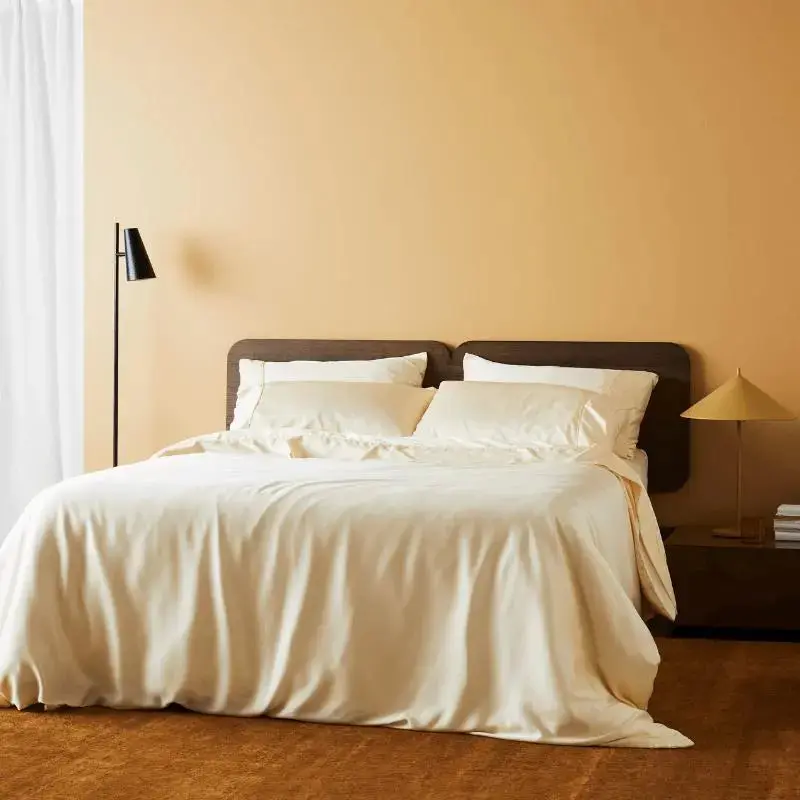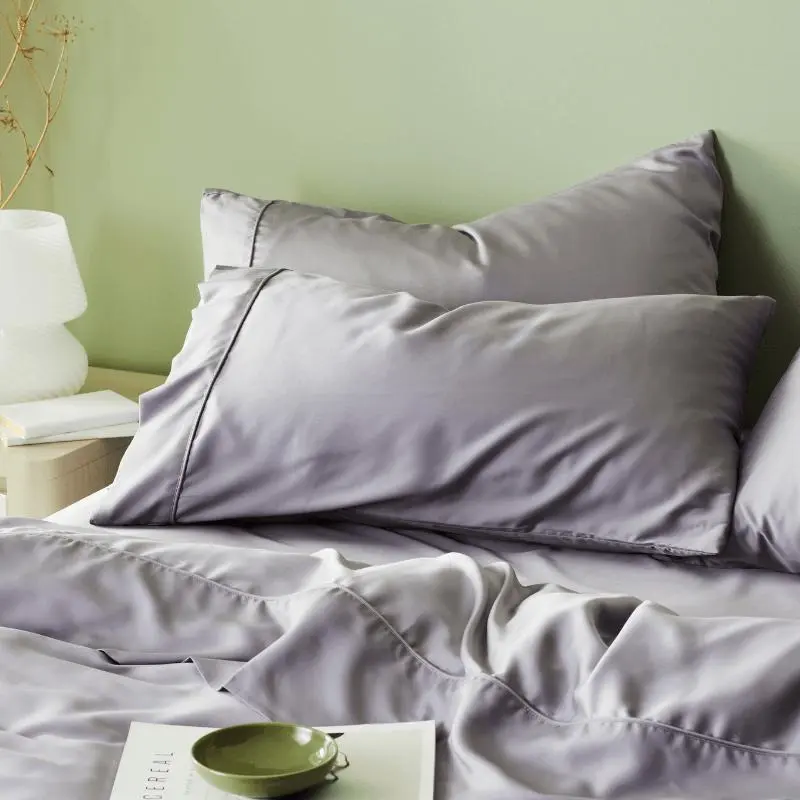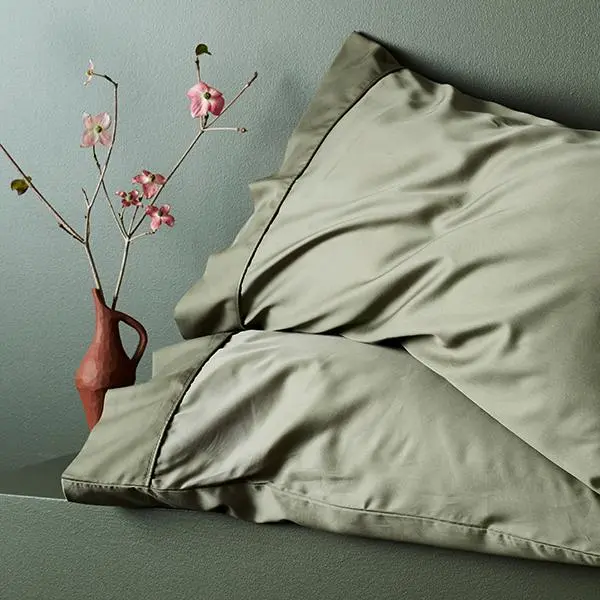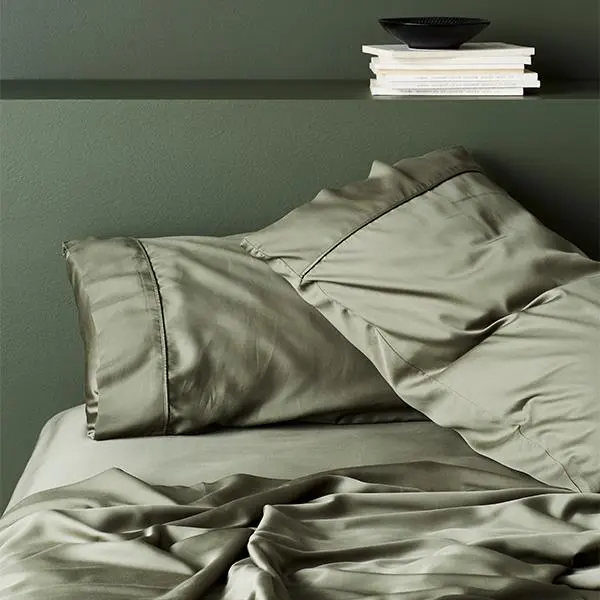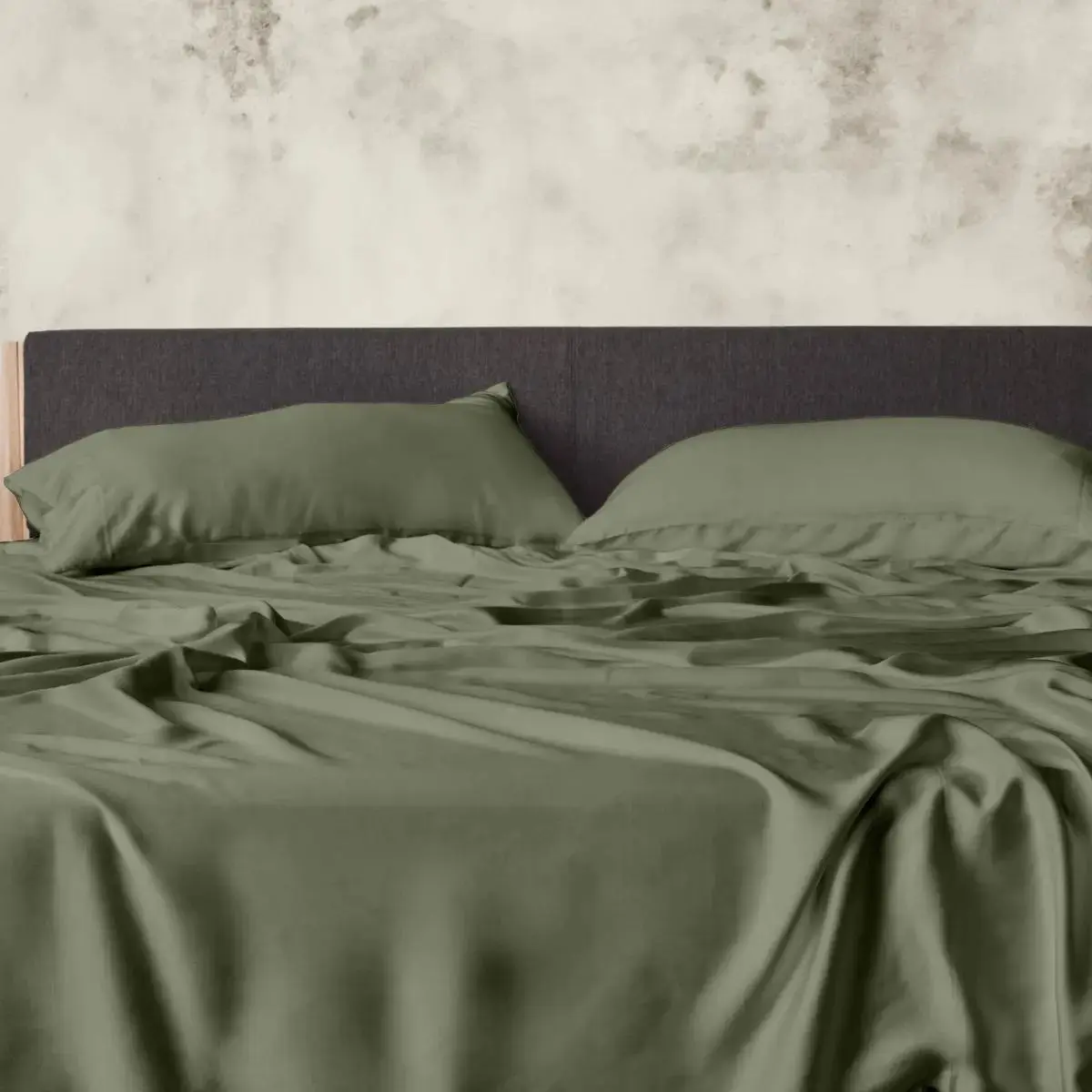As someone who has struggled with acne for years, I understand the frustration and embarrassment that comes with breakouts. Over time, I discovered that one often overlooked factor that can contribute to acne is the condition of your sheets. Yes, you heard it right – your sheets can play a significant role in the health of your skin. In this ultimate guide, I will delve into the connection between sheets and acne breakouts, providing you with valuable insights and tips to prevent those pesky breakouts.
When we sleep, our skin directly contacts our sheets for hours. Our skin accumulates dirt, oil, sweat, and bacteria throughout the day. If we don't regularly change our sheets, this build-up can transfer back onto our skin, clogging pores and leading to acne. Additionally, the friction between our skin and the sheets can cause irritation, especially if the sheets are not clean or made from abrasive materials.
How often should you change your sheets?
Now that we understand the connection between sheets and acne breakouts, the question arises – how frequently should we change our sheets to prevent these breakouts? The answer is not one-size-fits-all, as it depends on various factors such as personal hygiene, skin type, and lifestyle. However, a general guideline is to change your sheets at least once a week. This allows enough time for any build-up to be removed and ensures a fresh, clean surface for your skin to rest on.
If you have particularly sensitive or acne-prone skin, you may benefit from changing your sheets more frequently, such as every three to four days. This can help minimize the risk of bacterial growth and reduce the likelihood of breakouts. Conversely, if you have dry or less oily skin, you can stretch the timeframe between sheet changes to every ten days. However, paying attention to your skin's condition and adjusting accordingly is essential.
Factors that may affect how frequently you should change your sheets
While the general guideline of changing your sheets once a week is a good starting point, several factors may influence how often you should change them. Firstly, consider your personal hygiene habits. If you shower before bed and ensure your body is clean, you may be able to go longer between sheet changes. On the other hand, if you sweat heavily during sleep or engage in activities that expose your sheets to more dirt and bacteria, you may need to change them more frequently.
Another factor to consider is the climate you live in. In hot and humid environments, sweat production increases, making it more crucial to change your sheets regularly. Additionally, if you live in an area with high pollution levels or have pets that sleep on your bed, you may want to change your sheets more frequently to remove any allergens or irritants that could contribute to breakouts.
Finally, lifestyle factors can also impact how often you should change your sheets. If you regularly apply skincare products or have hair products that come into contact with your pillowcase, it is advisable to change your sheets more frequently. These products can transfer onto the sheets and potentially clog your pores, leading to breakouts.
Signs that it's time to change your sheets
Apart from following a general guideline or considering personal factors, there are several signs that indicate it's time to change your sheets. One of the most obvious signs is visible dirt or stains on the sheets. If you notice any discoloration or spots, it's a clear indication that the sheets need to be cleaned. Additionally, if you wake up with new breakouts or increased skin irritation, it may be a sign that your sheets are due for a change.
Another telltale sign is an unpleasant odor. When sheets are not changed regularly, they can develop a musty smell due to the accumulation of sweat, dead skin cells, and bacteria. If your sheets emit an unpleasant odor even after washing, it's a good indication that they need to be changed more frequently.
Lastly, consider the texture of your sheets. Over time, sheets can become rough, worn, or pilled. These rough surfaces can cause friction and irritation on your skin, exacerbating any existing acne or sensitive skin conditions. If your sheets feel rough or uncomfortable, it's a sign that it's time to invest in a new set.
Tips for maintaining clean sheets and preventing acne breakouts
Now that we know how often to change our sheets and the signs that indicate it's time for a change, let's explore some tips for maintaining clean sheets and preventing acne breakouts.
-
Wash your sheets in hot water: Hot water helps kill bacteria and remove dirt effectively. Be sure to check the care instructions for your sheets to ensure they can withstand hot water washing.
-
Use a gentle detergent: Harsh detergents can irritate the skin and worsen acne. Opt for a gentle, fragrance-free detergent specifically formulated for sensitive skin.
-
Avoid fabric softeners and dryer sheets: Fabric softeners and dryer sheets can leave a residue on your sheets that may aggravate acne-prone skin. Instead, let your sheets air dry or use dryer balls.
-
Change your pillowcase more frequently: Your pillowcase comes into direct contact with your face, so it may need to be changed more often than the rest of your sheets. Consider having multiple pillowcases on hand and change them every two to three days.
-
Invest in high-quality sheets: Look for sheets made from breathable fabrics like cotton or bamboo. These materials allow for better airflow and can help prevent sweat and oil buildup.
-
Avoid eating or applying skincare products in bed: Eating or applying products in bed increases the likelihood of spills or residue transferring onto your sheets. Keep these activities limited to other areas to maintain cleaner sheets.
By following these tips, you can maintain clean sheets and create a healthy environment for your skin to thrive, reducing the risk of acne breakouts.
Other factors to consider in acne prevention
While changing your sheets regularly is an important step in preventing acne breakouts, it is essential to consider other factors contributing to overall skin health. Here are a few additional factors to keep in mind:
-
Cleanse your face twice daily: A consistent skincare routine is vital for preventing acne. Cleanse your face twice daily using a gentle cleanser to remove dirt, oil, and bacteria.
-
Avoid touching your face: Our hands come into contact with countless surfaces throughout the day, picking up bacteria and dirt along the way. Avoid touching your face to minimize the transfer of these impurities onto your skin.
-
Use non-comedogenic skincare products: Non-comedogenic products are formulated not to clog pores, reducing the likelihood of breakouts. Look for this label when selecting skincare products.
-
Maintain a healthy diet: A balanced diet rich in fruits, vegetables, and whole grains can contribute to healthier skin. Avoid excessive consumption of sugary or greasy foods, as they may trigger breakouts.
-
Manage stress levels: High-stress levels can contribute to hormonal imbalances and increased oil production, leading to acne. Practice stress management techniques such as meditation, exercise, or engaging in hobbies you enjoy.
By incorporating these factors into your daily routine, you can enhance your overall skincare regimen and further reduce the risk of acne breakouts.
Conclusion and final thoughts
Maintaining clean sheets and preventing acne breakouts go hand in hand. You can significantly reduce the risk of acne breakouts by changing your sheets regularly, following a consistent skincare routine, and incorporating healthy habits into your daily life. Remember that everyone's skin is different, so paying attention to your skin's needs and adjusting your sheet-changing frequency accordingly is essential. You can achieve clearer, healthier skin and say goodbye to those pesky breakouts with proper care and attention.

